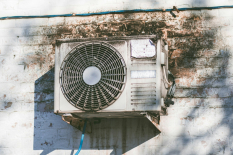Who does not want wealth in the today’s world is an open question with the answer everyone knows. This saying goes side by side with having good health as a renowned proverb portrays ‘health is wealth’.
Why Good Health?
Having good health comes from a healthy lifestyle which is crucial for adults and grown-ups in this day and time of challenges, competition, and struggle.
- Survival of the fittest was and is an immortal concept that will continue to pose challenges among the youth of this and future times.
- Enabling to get oneself ready to accept challenges and resist any intruder in the form of disease along with peace of mind, social inclusion, and harmony among peers.
- On top of that, one has to develop immunity against any type of disease which can attack an individual but is effectively faced with resistance from a healthy individual.
- Good health is not just the absence of disease or illness, it is a state of complete physical, mental and social well-being.
Challenges to Healthy Living
Many challenges come in the way of healthy adult living:
- Physical
- Environmental
- Social
- Cultural
- Psychological
All these cast their impact on an adult life but only those who confront them successfully develop resistance against any sort of negative stimuli coming from these fields.
In the globalized nature of the current socio-cultural setup, there are many challenges that haunt grown-ups for each coming day. Aside from occasionally veering off the path, most of us think we do a fair job of maintaining our health with good (or at least OK) eating habits and physical activity whenever we manage to fit it in. But is that enough to be considered “healthy?“.
Many studies show that just doing enough with not being attacked by disease is not the sufficient condition to be called healthy especially when you are grown-up.
There are two challenges at this stage:
- To maintain the status quo
- To leap forward simultaneously
There are 4 key indicators of being called ‘healthy’ among youth.
Necessary Conditions for a Healthy Living
Smoking, maintaining a healthy weight measured through Body Mass Index (BMI), eating fruit and vegetables at least five times per day, and ability/finding time to exercise five times per week lasting 30 minutes each time. If the answer to these activities is yes, you are all set to head towards a healthy lifestyle – we can say you meet the necessary condition for going towards a healthy lifestyle – followed by other conditions (called sufficient conditions).
While those four habits are indisputably important for a healthy lifestyle, some may argue that more factors should be taken into consideration. What would be on your list? Everyone should make a list of those habits and routine factors apart from the above four ones.
Where to Start With a Healthy Lifestyle?

Below 4 listed strategies are the necessary but not the sufficient conditions as well as not the basic ones.
1. Having Healthy Diet
Our bodies are like machines that require a balance of protein, carbohydrates, fat, vitamins, minerals, and water to stay in good working order. If the balance goes out of order, your health is destined to suffer one way or the other.
A healthy lifestyle begins with a healthy diet. A healthy diet means eating a balanced diet rich in all the essential nutrients while at the same avoiding junk and fast foods.
2. Eat as Per Requirement
It also does not mean to eat plenty: eating only as many calories as you use during the day. Any excess will be stored as fat if you eat more than you burn off leading to complications for your health.
- In this regard, take a lot of fibers, proteins, and fluids. Protein needs to be an essential part of your eating plan and can make up anywhere from 10%-35% of your total calories.
- Protein lasts a long time in your belly when combined with high-fiber foods and you’ll feel full on fewer calories. Enjoy small portions of nuts, low-fat dairy, beans, lean meat, poultry, or fish.
- The don’ts include avoiding smoking, reducing salt and sugars, replace saturated with unsaturated fats, avoid pre-prepared and oven-heated food as it would contain plenty of salt, sugar, and chemicals. Also, avoid heavy meals in the summers as well as undercooked or raw meals.
- Avoid eating heavily before sleep while also refrain from drinking soda-filled drinks.
3. Exercise – Exercise – Exercise
The next step is to stay active through work-out and exercise. Your body is not made to sit idle rather is synonymous with movement all the time while taking rest/sleep for 6-8 hours at night.
- Keep your muscles and joints busy during the day. If you stop walking, they’ll stop working.
- Almost any type of exercise (resistance, water aerobics, walking, swimming, weights, yoga, and many others) is helpful for everybody especially adults.
- Sedentary living and lack of exercise are associated with type II diabetes mellitus (also known as maturity or adult-onset, non-insulin-dependent diabetes).
- Quit smoking and other addiction of drinking alcohol etc. Stop smoking tobacco; start to stop today (it takes about 15 years of nonsmoking behavior to achieve a “normal” risk level for heart disease for those that smoke).
- Quitting smoking is difficult but has a range of health benefits if done with a serious life-long commitment complemented through counseling, use of nicotine chewing gum, or oral medication. Similarly, brushing and flossing regularly are laden with many health benefits as well as a limited probability of intercepting disease.
4. Mental Peace – A Catalyst of Healthy Living
Mental and social peace are necessary too for leading a healthy lifestyle.
- Aloofness, being calm every time and social exclusion haunt a person badly. For this, maintain a good company of friends, classmates, and family members.
- Try to have regular family meals where parents and brothers will discuss issues and find solutions to inmate problems. You will get a chance to smile and share memories filled with joy and happiness while feeling nostalgic and connected.
- Smiling and laughing out loud are said to have a very positive impact on mood and interactions. It keeps you grounded, and helps you cope with situations that would otherwise make you crazy.
- In the meanwhile, doing mediation/yoga or praying in solace for at least 30 minutes a day as contemplation is good for your soul, helps you cope with the demands of daily life, and may even help lower your blood pressure.
- Always try to have a positive attitude and thinking.
Last but not the least, it is you who is the change agent as you can make a difference in your health and well-being. Take charge of your life, and be mindful of small behavior changes that can make your lifestyle a healthier one.

















Very informative and helpful guide.
Good job